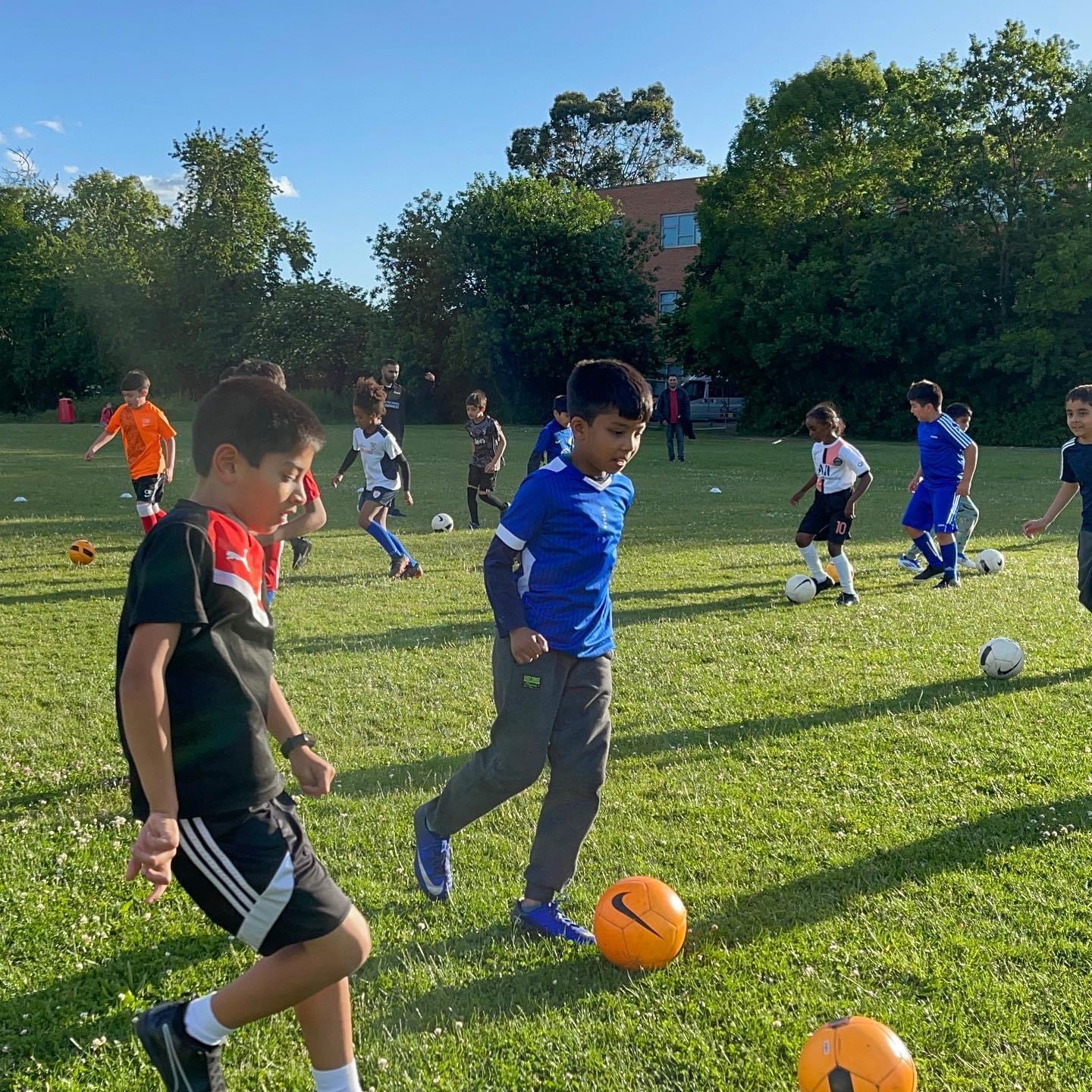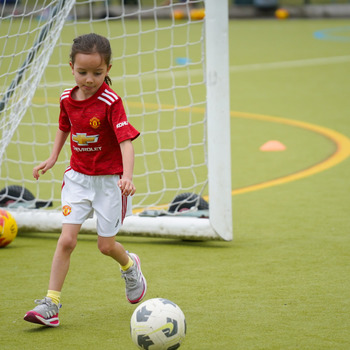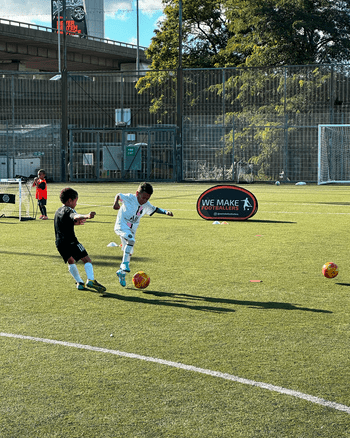Not only is football great fun to play, but it can also have huge benefits for your health and fitness. A 2015 study by the University of Copenhagen showed that 12 weeks of football training can increase the amount of oxygen that our bodies can process by 10 to 15 per cent and reduce the risk of cardiovascular diseases by 50 per cent.
Football is so effective because it uses so many different systems within the body. Throughout a training session or game, a player can expect to use their aerobic and anaerobic energy systems and various muscles and bones across the body, as well as their minds.
Here’s how football can improve your fitness.
Aerobic fitness 
Aerobic exercise is where the oxygen that you breathe is carried to your muscles via the lungs, heart and blood system to supply them with the energy they need to carry out the required task. This sort of exercise is therefore associated with low-intensity activity, which in football involves jogging or walking.
In the average game, a player will spend 37 per cent of their time jogging and 25 per cent of it walking. Those numbers tell you why the sport is so good for improving aerobic fitness.
Anaerobic fitness
Sometimes, the body’s aerobic systems can’t deliver energy quickly enough to the muscles to keep them operating. That’s the case when you take part in high-intensity activities such as sprinting.
When this happens, your body turns to its anaerobic energy systems. These can give you a boost of energy, in short, sharp bursts but very quickly become depleted, at which point they need replenishing. This is known as oxygen debt, as your body works hard to replace the oxygen it burned during that intense period of exercise.
Around one-third of a game of football is spent sprinting or running at high intensity, which means it provides an excellent anaerobic workout. The more anaerobic exercise you do, the greater your body’s capacity to work in that way becomes, meaning you can sprint and work harder for longer, which makes you fitter in the long run.
Strength and agility
Because a footballer has to use their entire body during a game or weekly training session, it provides an excellent full-body workout for muscles and bones. This can lead to big improvements in a person’s strength and agility levels.
Take the upper body for example. Taking a throw-in works on arm and back strength. Leaping for a header improves upper body muscles, as does holding off an opponent who is trying to knock you off the ball. A lot of movements performed by players in the game also require strong core strength.
Core stability improves through this newfound strength while making quick turns and changes of direction has a profound impact on agility.
As for the lower body, the benefits should be obvious. The entire leg receives a thorough workout when playing football, starting from the ankle right up through the leg, including the calves, quads, hamstrings and glutes, which are all more improved the more you play.
Mobility
When playing football, you need to have mobility to quickly change direction and move around the field faster and efficiently. Good mobility also helps avoid getting hurt by reducing the strain on your muscles and joints during the game. Barbend provides details of exercises you can follow to improve your mobility in their blog on mobility exercises. While not suitable for children, for adults these exercises are easy to perform and require minimal equipment, so you can do them at home or at the gym. Please note: The content on BarBend is meant to be informative in nature, but it should not be taken as medical advice.
Body composition
As with all exercise, football can help you lose weight by burning off calories. According to Harvard Health, an individual who weighs 155 pounds can burn up to 780 calories during a 90-minute match.
Anaerobic respiration uses fat in its oxygenation process while aerobic takes carbohydrates. Because football relies so heavily on those two forms of exercise, you can either start to lose weight or maintain a healthy weight when you combine playing with a healthy diet.
Brain power
Football isn’t all just running and kicking – it requires a lot of thought as well. Players are constantly analysing what is happening on the pitch to decide where they need to move to next.
Decisions are made all the time, whether it be to shoot or pass. Do you try and dribble out of trouble or just get the ball clear? Stand a man up or put in a tackle? So much of the game takes place in your head and you may not even realise it. This makes it a good workout for your mind.
Then there is the social aspect of the sport. Being part of a team requires communication and focusing on what is best for the collective while being successful will boost your confidence and self-esteem.
Please note: all content in this blog is informative in nature and should not be considered medical or professional advice.



